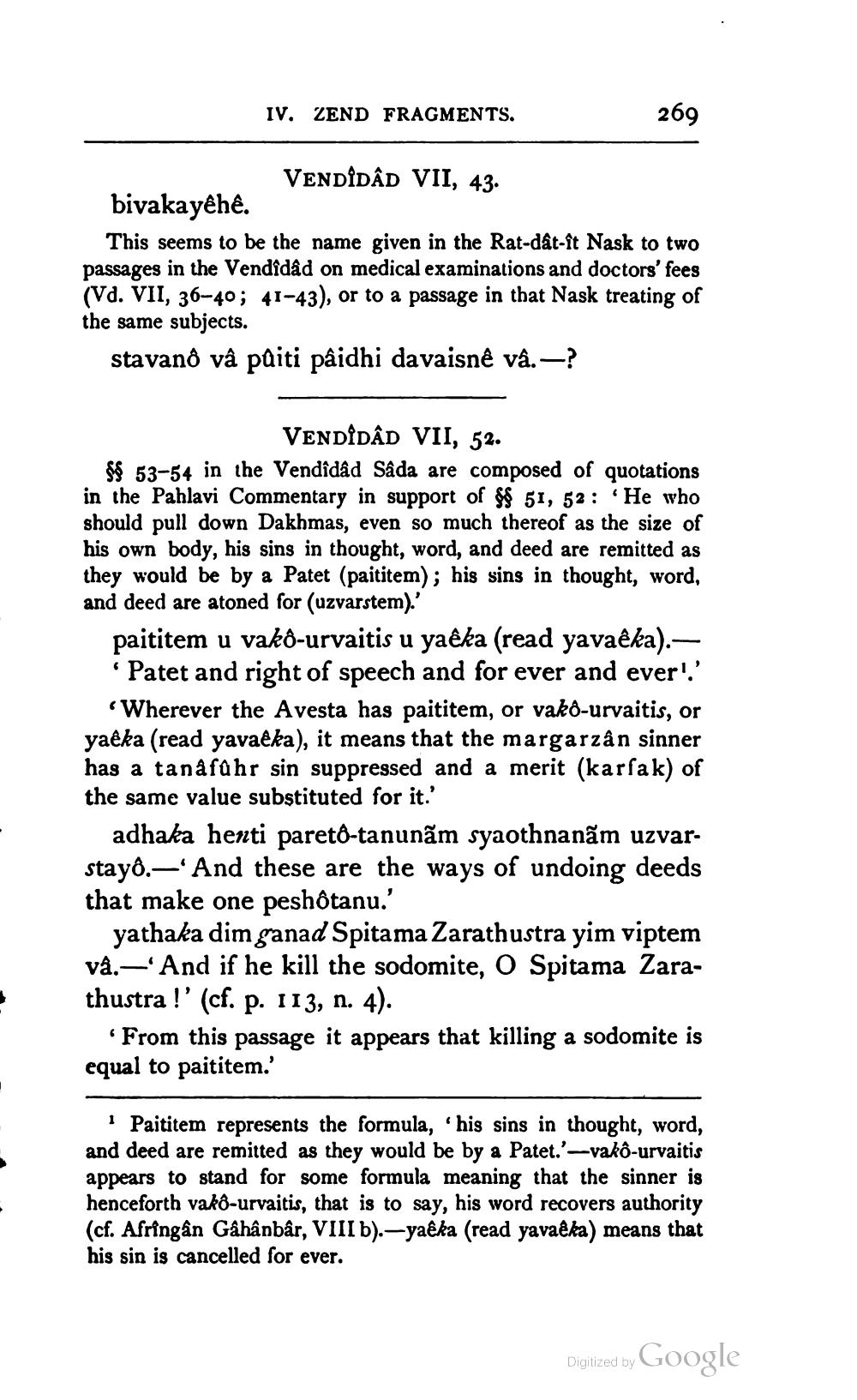________________
IV. ZEND FRAGMENTS.
269
VENDIDAD VII, 43. bivakayêhê.
This seems to be the name given in the Rat-dật-ît Nask to two passages in the Vendidåd on medical examinations and doctors' fees (Vd. VII, 36-40; 41-43), or to a passage in that Nask treating of the same subjects.
stavanð vâ puiti pâidhi davaisné vâ.—?
VENDIDÂD VII, 52. $53-54 in the Vendîdåd Såda are composed of quotations in the Pahlavi Commentary in support of $$ 51, 52: “He who should pull down Dakhmas, even so much thereof as the size of his own body, his sins in thought, word, and deed are remitted as they would be by a Patet (paititem); his sins in thought, word, and deed are atoned for (uzvarstem).' paititem u vakð-urvaitis u yaêka (read yavaêka).
Patet and right of speech and for ever and ever!'
Wherever the Avesta has paititem, or vakð-urvaitis, or yaêka (read yavaèka), it means that the margarzân sinner has a tanaführ sin suppressed and a merit (karsak) of the same value substituted for it.'
adhaka henti paretô-tanunãm syaothnanām uzvarstayô.—'And these are the ways of undoing deeds that make one peshôtanu.
yathaka dim ganad Spitama Zarathustra yim viptem vå.— And if he kill the sodomite, O Spitama Zarathustra !' (cf. p. 113, n. 4).
From this passage it appears that killing a sodomite is equal to paititem.
Paititem represents the formula, "his sins in thought, word, and deed are remitted as they would be by a Patet.' - vakô-urvaitis appears to stand for some formula meaning that the sinner is henceforth vakð-urvaitis, that is to say, his word recovers authority (cf. Afringân Gâhânbår, VIII b).-yaêka (read yavaêka) means that his sin is cancelled for ever.
Digitized by Google




